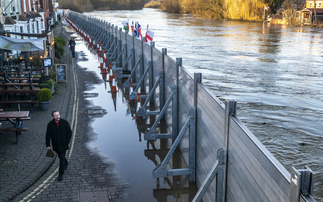Experts offer new task force seven ideas on how best to increase corporate transparency on climate-related risks
5. Common metrics and standards are needed to avoid "survey overload"
Another important challenge for the task force is to look at integrating reporting from different financial accounting and audit authorities. "There is survey overload in business at this very moment, and each framework has different affirmation on what the boundary of climate risk disclosure is," said Peter Bakker, president of the World Business Council for Sustainable Development (WBCSD).
It is clear that the guidance from the task force needs to be about decision-making information, said Lubber, addressing investor and other stakeholders' need for consistent and comparable figures. "There are dozens of competing standards and service providers, and companies are responding to dozens if not literally hundreds of requests for disclosure every year: we need consistency, we need clarity and we need these things integrated," she advised.
6. Guidelines need to be "regulatory ready"
While guidelines released by the task force will be voluntary, the opportunity to influence the area of mandatory climate-related disclosure is extremely high in scope. "While we know that the task force is not about setting regulation, the recommendations should be regulatory ready," said Simpson, pointing out that governments across the world are now looking at what regulations to implement in the wake of the Paris Agreement - increasing the scope for even more inefficiencies if a common international framework is not adopted.
7. Push for a carbon price
The idea of a global carbon price was pushed towards the backseat in Paris, as diplomats strived for an agreement that nearly 200 countries could back. But several of the experts at Tuesday's event urged the task force to breathe new life into calls for some form of global carbon pricing mechanism.
"It's the most powerful economic incentive that is out there, and businesses are now unanimously calling for it," said Bakker. "Government finds it still a difficult beast to handle, but if [the] task force weighs in, that will help."
Paul Simpson from the CDP echoed this call, arguing some form of carbon price "would make this [climate-risk] disclosure a lot more valuable".
This article is part of BusinessGreen's Road to Paris hub, hosted in association with PwC.








